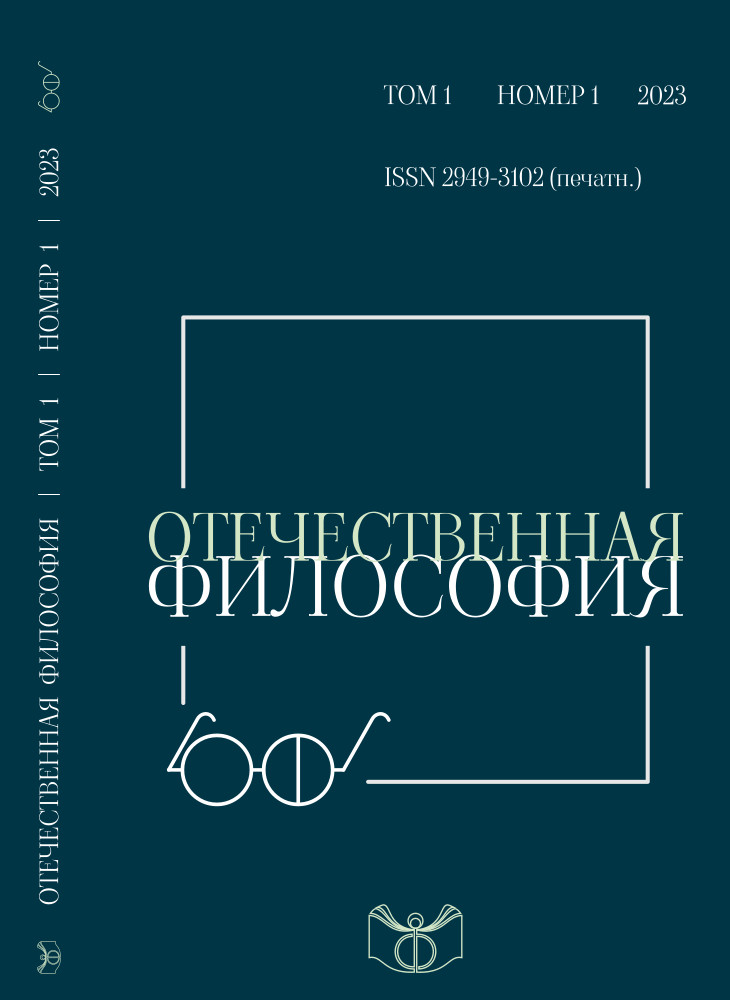Eurasianism in the Mirror of Research Approaches, or The Search for a Concrete Understanding of the Ideological Complex of the Movement
Keywords:
Eurasianism, history of Russian thought, methodology of research, concrete idealism, chronology and history of the Eurasian movement, Eurasian encyclopediaAbstract
The article is devoted to the issues of Eurasian studies, methods and research approaches to this important section of the history of Russian philosophical thought. The article highlights such methods as critical, conceptual, archival, author's approaches (dialectical method, structuralist approach, interdisciplinary and comparative research, etc.). It is argued that, unlike the Western research tradition, in Russia, at the very beginning of the study of Eurasian texts and archival documents, a solid foundation was laid by such authors as S.M. Polovinkin (1935–2018), A.V. Sobolev (1936–2019), V.Y. Pashchenko (1940–2007), who put the study of Eurasianism on solid ground of facts and concrete consideration, free of ideological cliches, and, at the same time, proposed original author's concepts. In the future, the study of Eurasianism developed in several directions, in particular, the publication of archival texts, or the republication of original works with comments. This direction made it possible to clarify many hidden aspects, but directed the attention of researchers to archival studies, which hampered the conceptual analysis. The article discusses the main problems of Eurasian studies – the lack of a complete chronology or monograph about the history of the Eurasian movement, opposite concepts, the lack of a unified opinion not only about the essence of the Eurasian doctrine, but even about its origins and subsequent development, a huge layer of unpublished material, both archival and previously published. The objective difficulties of Eurasian studies depend on the fact that the doctrine, ideology, various concepts (geopolitical, cultural, geographical, etc.) were created by Eurasian authors, each of whom was a recognized expert, sometimes of the world level of his time. Modern researchers may not take this point into account, believing that they can easily talk about Eurasianism, which supposedly has no philosophical or other scientific basis, such as, for example, structuralism or the theory of cycles in economics, developed by P.N. Savitsky and A.A. Alekseev. The author of the article offers her own concept of the chronology of the Eurasian movement and speaks about the most effective method of studying Eurasianism – a concrete understanding, the origins of which are in the conciliar consciousness described by S.N. Trubetskoy, the father of the founder of Eurasian movement Nikolai Trubetskoy.


